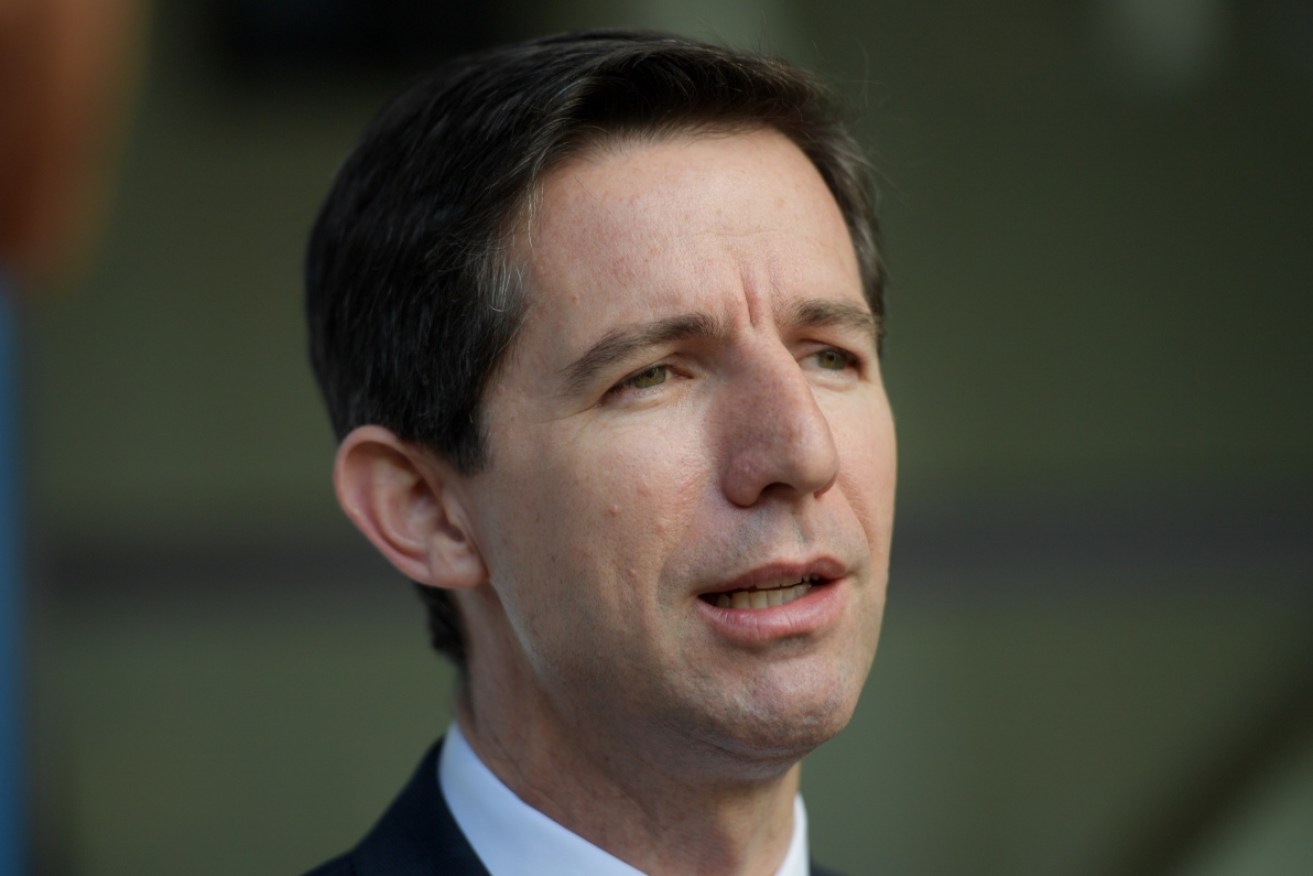The government’s new English language testing for international students explained – it’s not new at all


Simon Birmingham said financial support will taper once 80 per cent double-dose targets are met. Photo: AAP
A government proposal toughening the English language tests of international students isn’t likely to sink the university sector.
In fact, experts say it won’t change much at all.
Education Minister Simon Birmingham on Thursday announced international students would need to meet a standardised proficiency before enrolling at an Australian institution through the English Language Intensive Course for Overseas Students (ELICOS).
The reform, affecting Australia’s third-largest export earner worth more than $28 billion to the economy each year, would come into effect on January 1, 2018.
The announcement ushered in pronouncements of doom in some quarters, for fear the move would strangle the lucrative overseas education sector.
But Seamus Fagan, director of the English Language and Foundation Studies Centre at the University of Newcastle, did not expect the proposal to precede a drop in international students.
“The initial reaction is, in one sense, it looks like there’s a lot of changes. But in reality there is not,” Professor Fagan told The New Daily.
He said most ELICOS providers already assessed students on completion of the program.
“I think there’s a bit of misunderstanding in the media that this is suddenly happening. There’s always been some form of assessment at the completion of an ELICOS English for Academic Purposes course.
“The media spin of this is that the government’s clamped down on something. It’s not.”
Professor Fagan welcomed the emphasis on benchmarking standards, which would likely boost Australia’s reputation as a quality provider for international students.
“It’s not a reform, it’s a welcome enhancement.”
All ELICOS courses will have a minimum of 20 face-to-face contact hours per week and a maximum teacher-to-student ratio of 1:18. This was already the case under the 2007 National Standards for ELICOS providers and courses.
The courses cost between $250 and $350 each week, according to the ELICOS website. The course costs $420 a week at Victoria’s Swinburne University.
A spokesperson from the University of Sydney said the institution already had tough requirements.
“The University of Sydney has some of the toughest English requirements of any tertiary institution in Australia and we welcome the changes by the Education Minister to further strengthen the sector in Australia.”
The university already requires international students to score above 6.5 in the IELTS 9 (International English Language Testing System), with some courses requiring scores above 7.5 out of nine.
Senator Birmingham said the government didn’t know exactly how many of the 150,000 international students last year didn’t have proficient English, although the vast majority achieved high-quality outcomes.
“But we know there are a number of anecdotal instances, that you hear of students not being able to fully participate in group work or struggling through the class work that is set for them,” he told ABC radio on Thursday.
The standards will be extended to vocational education and training courses, to ensure all ELICOS providers are giving international students quality English classes.
.@Birmo: strengthening the standards of universities will assist international and domestic students alike. MORE: https://t.co/J9PtHDgIw6 pic.twitter.com/YLWwVpyr0f
— Sky News Australia (@SkyNewsAust) October 12, 2017
“This should give absolute confidence to international students wanting to come to Australia that when they come to Australia, they’ll get the English language skills to succeed …” Senator Birmingham told a conference in Hobart.
The higher education regulator, Tertiary Education Quality and Standards Agency (TEQSA), welcomed the revised standards.
“The changes come after significant consultation by the Department of Education and Training, with input from TEQSA and other key industry stakeholders such as English Australia.
Deputy Opposition Leader Tanya Plibersek said Labor was “open to this proposal”.
“We’ll take a little bit of time to examine the details when we get them from the government, but on the face of it we think it is important that students who are studying in Australia do have good English, that they’re able to participate effectively in class,” Ms Plibersek told Sky News.
The New Daily contacted unions representing international students for comment.








